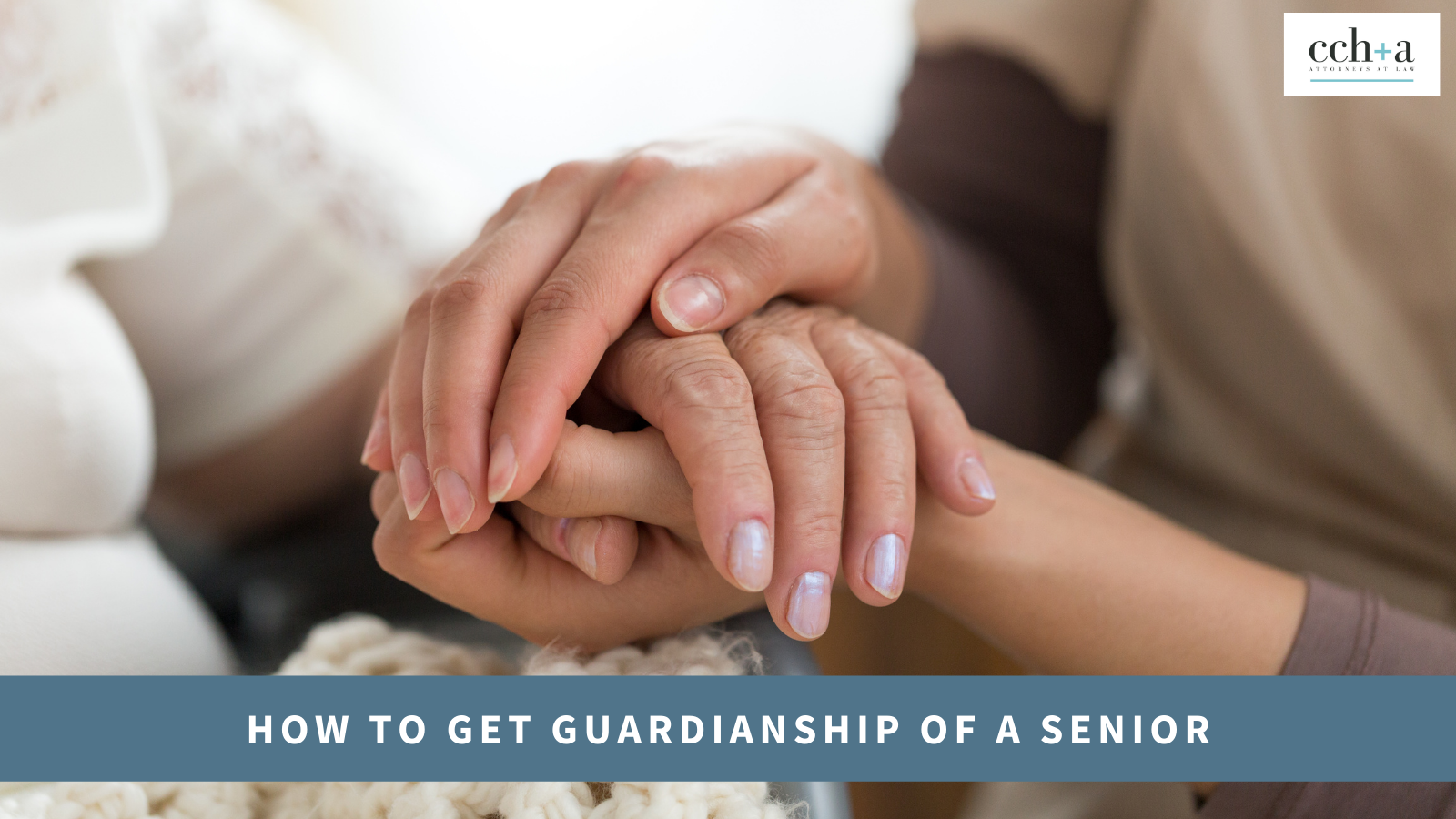
2020 has been a challenging year for many. If that includes you and an older family member you love, CCHA is here to help walk you through steps on how to get guardianship of a senior.
It can be emotionally draining to watch a senior loved one lose the ability to think clearly or make sound decisions. With CCHA as your partner, you won’t walk through the difficult decision of making life changes on your own - instead, you’ll have experienced, compassionate attorneys working alongside you to make this life transition as easy as possible for all parties involved.

What is guardianship? A guardian is one appointed by the court as a fiduciary to protect and manage the person and/or property of an incapacitated person — in this case, a senior. A guardianship legally obligates a party to place another’s interests above their own.
Whether due to general aging, disease or even injury, seeking legal guardianship may be necessary to ensure the safety and quality of life for a parent or senior in your life. Here are the steps you need to take to make the transition as smooth and seamless as possible:
- Locate pertinent documents: if not sudden, it’s possible your senior family member has already secured documents needed to secure a guardianship. You’ll want to try and secure the durable power of attorney and healthcare power of attorney forms your family member possesses. These documents serve as a basis for managing your senior’s finances and helping find a suitable place for them to live, now that their needs have changed.
- Petition the court: the next step, though often painful, is to prove your loved one as unable to care for themselves independently. This often entails demonstrating specific actions that prove incompetence, as well as expert medical opinions to further prove the state of your loved one.
Once a guardianship is appointed, the senior becomes a ward of the court and their guardian is legally responsible and accountable to the court for everything he/she does on the senior’s behalf. This can include securing new living arrangements, setting up new financial accounts, and managing the senior’s financial affairs. Guardians must keep extensive records and receipts for all financial transactions made on behalf of or for the senior in their care.
In addition to obtaining an adult guardianship, CCHA’s Estate Planning Attorneys can help families navigate the challenging issues such as:
- Drafting legal documents including a Will or Trust, a Power of Attorney, an Advance Healthcare Directive, or a Personal Care Contract for in-home care
- Applying for Medicaid
- End-of-Life Planning
The elder community deserves the utmost respect as they transition to the next stage of life. CCHA attorneys will listen to your concerns, evaluate your needs, and help you find the best solutions to meet your specific family needs, as care about seniors, their unique needs, and their individual situations. Contact our Elder Law attorneys and let us help your family maneuver the next chapter.


